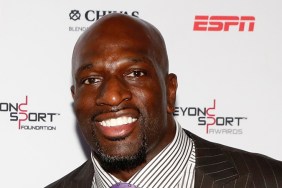Sports Legacy Institute Announces Findings of Forensic Examinations on Wrestler Chris Benoit’s Brain
NEW YORK, Sept. 5 /PRNewswire/ — Leading medical experts associated with the Sports Legacy Institute today appeared with Michael Benoit, father of professional wrestler Chris Benoit, to release the results of neuropathological tests that demonstrate his son suffered from a type of brain damage called Chronic Traumatic Encephalopathy (CTE), which was found in all regions of his brain. The Sports Legacy Institute (SLI), which oversaw and coordinated the testing, is an independent medical research organization dedicated to studying the long-term effects of head injuries in sports. SLI President Christopher Nowinski contacted Michael Benoit on June 28th, the Thursday after his son’s death, to obtain permission to study the wrestler’s brain. SLI’s research has indicated there is a connection between the repeated head injuries suffered by many athletes involved in contact sports and an aggregation of abnormal Tau proteins in the brain, causing CTE. CTE’s most common symptoms include depression, cognitive impairment, dementia, Parkinsonism and erratic behavior. Experts believe that CTE may have been a cause or contributing factor in the Benoit tragedy. While CTE has long been found in boxers, and more recently in NFL football players, the findings of CTE in Benoit suggest that athletes involved in other contact sports may also be at a heightened risk for this type of brain injury.
“When Chris Nowinski contacted me about conducting tests on Chris’ brain, I was extremely hesitant given the circumstances surrounding my son’s death,” said Michael Benoit. “I agreed to the testing after he explained their desire to expand knowledge about the potential brain damage that athletes can suffer from repetitive head injuries in contact sports. When the results were explained to me by the SLI doctors, I was shocked to learn the extent of damage and saddened that he could have been suffering from this without anyone’s knowledge. I hope the examination of Chris’ brain leads to greater understanding and ultimately helps protect athletes of all ages.”
Bennet Omalu, MD, MPH, a leading forensic neuropathologist, the Chief Medical Examiner of San Joaquin County, CA, and founding member of the Sports Legacy Institute examined Chris Benoit’s brain as part of the Sports Legacy Project and had also examined the brains of Mike Webster, Terry Long, Andre Waters, and Justin Strzelczyk all of whom were professional football players, died by the age of fifty, and displayed similar psychological and behavioral profiles. Their brains showed evidence of CTE and two of the players — Long, and Waters — committed suicide.
Mike Webster died of a heart attack, but suffered from dementia, depression, and exhibited erratic behavior after retiring from football. When Justin Strzelczyk died at the age of 36, he had been telling relatives he was hearing voices from “the evil ones” and then led police on a 40 mile high- speed chase through central New York at speeds up to 100 mph on the wrong side of the highway, which resulted in an explosive crash and his death
“When the SLI approached Michael Benoit about testing Chris’ brain as part of the Sports Legacy Project, our goal was to determine if there was evidence of CTE caused by repeated trauma to the head sustained during Chris Benoit’s career. We have now confirmed multiple concussions are part of his medical history, along with clinical symptoms associated with CTE,” said Julian Bailes, MD, Professor and Chairman of the Department of Neurosurgery at West Virginia University School of Medicine and an SLI founding member. “Because my SLI colleagues and I have found evidence of CTE in the brains of four former professional football players, we felt an examination of Chris Benoit’s brain may bring awareness to CTE’s existence outside of boxers and football players. The findings of CTE in Chris Benoit suggest that there may be a common syndrome among athletes who suffer multiple head injuries in contact sports.”
The neuropathological findings were confirmed by other neuropathologists, and correlate with recent findings of an increased risk of depression and cognitive impairment in professional football players who have suffered multiple concussions, according to research conducted by Dr. Bailes and another SLI founding member, Robert Cantu, MD, Chief of Neurosurgery Service and Director of Sports Medicine at Emerson Hospital in Concord, MA, and Co- Director of the Neurologic Sports Injury Center at Brigham and Women’s Hospital in Boston, MA.
Chronic Traumatic Encephalopathy (CTE) is a form of brain damage that is best documented in boxers, but can also occur in athletes who played football, ice hockey, rugby, soccer, or any sport associated with impacts to the head. It can only be confirmed by a post-mortem neuropathological immunohistochemical study. While studies show that as many as 20 percent of professional boxers show evidence of CTE, there has been little study of CTE in athletes involved in other contact sports.
According to the examinations, Mr. Benoit’s brain exhibited large amounts of abnormal Tau protein, manifested as Neurofibrillary Tangles (NFTs) and Neuropil Threads [NTs]. These represent aggregates of abnormal Tau protein, which are remnants of the cytoskeleton of the brain cells and their connections. Frequent NFTs and NTs were distributed in all regions of the brain including the neocortex, the limbic cortex, subcortical ganglia and brainstem ganglia accompanied by loss of brain cells. Accumulation of abnormal Tau protein in the form of NFTs and NTs in the brain has been confirmed to cause neurodegeneration, cognitive impairment and dementia. There was no other neuropathological evidence for any chronic or acute disorder to explain his clinical symptoms.
“The findings of CTE in Chris Benoit’s brain, which are consistent with the previous examinations of athletes who suffered from repeated head traumas, confirm the need for a large-scale study of CTE in athletes who participate in contact sports,” said Chris Nowinski, who retired from professional sports after multiple concussions and conceived SLI, a collaboration of doctors and advocates that includes renowned attorney Robert Fitzsimmons, who played an integral role. “The link between CTE and contact sports is clear. We need to conduct more research to understand the full spectrum of the disease and raise awareness so parents, coaches, medical staff and athletic officials know how to respond when athletes, including children, sustain head injuries. If we apply this knowledge we believe we can successfully prevent future cases.”
The Sports Legacy Institute is dedicated to studying the effects of concussions and other sports related brain injuries. Through its efforts, SLI aims to maximize the safety and vitality of all athletes who participate in contact and collision sports around the globe. The designation of the Sports Legacy Institute as a 501(c)3 nonprofit corporation is in the process of being submitted. The Sports Legacy Institute relies on donations from concerned parties to fund its work.
Sports Legacy Institute








